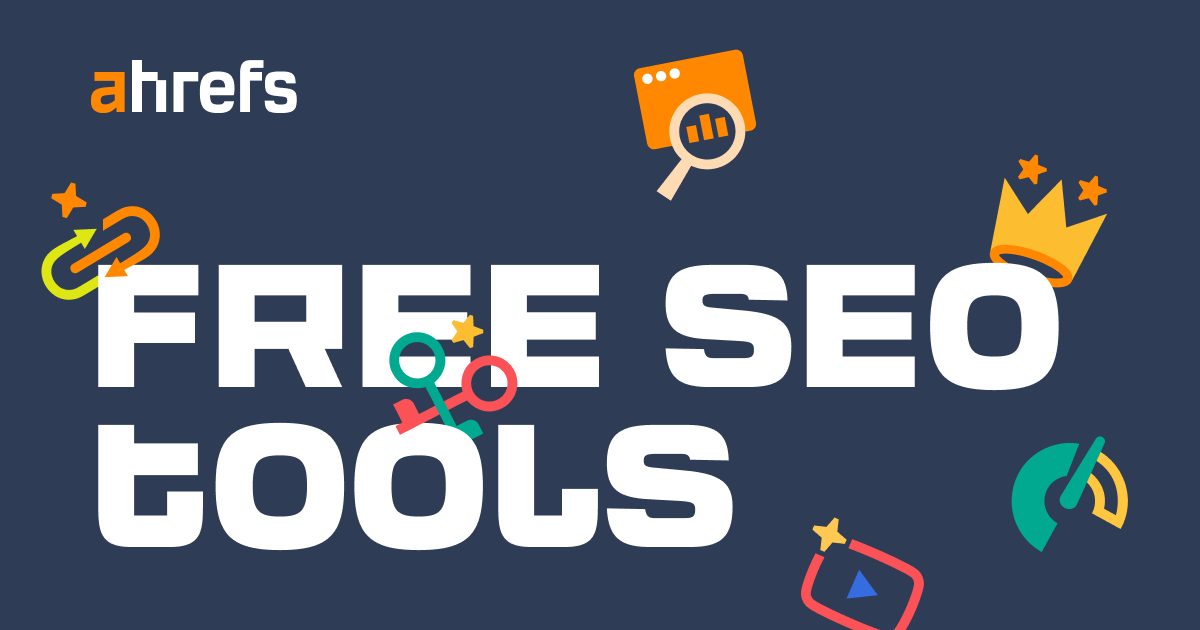
The SEO world is changing fast, especially with AI-driven search rising. Marketers must understand which tools actually move the needle in 2025 and beyond. Ahrefs is one of those tools powerful, reliable, and constantly evolving.
This guide explains how to use Ahrefs to survive content saturation, algorithm shifts, and AI-driven SERPs. You’ll learn how to apply its features strategically to rank higher and futureproof your site.
Why Ahrefs Matters More in the Age of AI Search
Ahrefs is more than a backlink checker. It’s a complete SEO intelligence platform.
With AI search engines reshaping results, data-driven strategies are vital.
What It Is
Ahrefs collects and analyzes web data from billions of pages.
It offers backlink tracking, keyword research, site audits, rank tracking, and competitor insights.
Why It Matters
AI search tools like ChatGPT and Perplexity now answer questions directly.
This reduces organic clicks, so SEO must focus on brand visibility and authority.
Ahrefs helps measure and build that authority with concrete data.
How to Apply It
- Audit your site monthly with Ahrefs’ Site Audit.
- Track your rankings with Rank Tracker.
- Research competitors’ content gaps to plan better content.
Pro Tip: Treat Ahrefs like a decision engine, not just a reporting tool. Use the data to guide strategy, not just track progress.
Understanding Content Saturation and AI Overuse
The web is flooded with similar AI-written content.
This makes standing out harder than ever.
What It Is
Content saturation happens when too many similar pages target the same keywords.
AI tools accelerate this by mass-producing generic articles.
Why It Matters
Google now demotes unoriginal content through its Helpful Content system (now part of its core algorithm).
AI-driven search engines also prefer authoritative, unique voices.
How to Apply It
- Use Ahrefs’ Content Explorer to check how many pages target a topic.
- Look for low-competition keywords with high traffic potential.
- Focus on unique insights, data, or firsthand experience in your content.
Example: If 2,000 articles exist on “best running shoes,” find a gap like “best running shoes for flat feet in humid climates.”
Bonus Tip: Add personal or client case studies to stand out in saturated niches.
Tracking Engagement Metrics with Ahrefs
User engagement is a rising ranking signal.
Google and AI search both prioritize satisfying content.
What It Is
Engagement metrics include CTR (click-through rate), dwell time, and pogo-sticking (users bouncing back quickly).
Why It Matters
- Higher engagement signals content quality.
- It boosts your rankings and visibility in AI summaries.
How to Apply It
- Use Ahrefs’ Site Explorer → Organic Keywords to find low-CTR pages.
- Rewrite meta titles/descriptions to improve CTR.
- Use heatmaps (via other tools) to improve dwell time.
Pro Tip: Add jump links or a table of contents to increase dwell time by improving navigation.
Avoiding Over-Optimization Risks
Over-optimization can silently kill rankings.
Many sites still fall into this trap.
What It Is
Over-optimization includes keyword stuffing, excessive internal links, or unnatural anchor text.
Why It Matters
Google’s core algorithm penalizes over-optimized content.
AI-driven systems may classify it as spammy or low-trust.
How to Apply It
- Run Ahrefs’ Site Audit → Content Quality to detect keyword stuffing.
- Maintain natural keyword density (around 1–2%).
- Diversify your internal link anchors.
Example: If you always link as “best SEO tool,” alternate with natural phrases like “SEO resources” or “Ahrefs platform.”
Bonus Tip: Refresh old posts to rebalance keyword usage without deleting them.
Navigating AI-Driven SERPs and Zero-Click Searches
Zero-click searches are rising rapidly.
Users get answers directly from AI summaries and featured snippets.
What It Is
AI-driven SERPs display instant answers without requiring a click.
Think of Google SGE, ChatGPT search answers, and Perplexity responses.
Why It Matters
This trend reduces organic traffic.
Your content must earn visibility inside these AI answers.
How to Apply It
- Use Ahrefs’ Keywords Explorer to find questions-based keywords.
- Structure content with clear headings and bullet points.
- Mark up pages with schema to improve snippet eligibility.
Pro Tip: Use concise answers (40–60 words) in your content to capture featured snippets.
Meeting YMYL Standards with EEAT
YMYL (Your Money, Your Life) content faces stricter standards.
This includes finance, health, legal, and safety topics.
What It Is
EEAT stands for Expertise, Experience, Authority, and Trust.
Google uses it heavily to assess YMYL pages.
Why It Matters
Without EEAT, YMYL pages won’t rank well in Google or appear in AI summaries.
How to Apply It
- Use Ahrefs to analyze top-ranking competitors’ backlinks and brand mentions.
- Add author bios with credentials and real-world experience.
- Build backlinks from niche-relevant, trusted domains.
Example: A finance blog can cite its writer’s CFA certification and link to interviews or press mentions.
Bonus Tip: Publish transparent editorial policies and reference sources to boost trust.
Building Site Reputation and Link Quality with Ahrefs
Links remain one of the strongest ranking factors.
But quality matters more than quantity.
What It Is
Ahrefs’ Site Explorer reveals your backlink profile and competitors’ link sources.
It measures link quality via metrics like Domain Rating (DR).
Why It Matters
High-authority links boost your reputation.
They also signal trust to AI-driven search tools.
How to Apply It
- Identify competitors’ top referring domains using Ahrefs.
- Pitch guest posts or collaborations on those domains.
- Use Ahrefs’ Broken Link Checker to earn links by fixing dead resources.
Table: Link-Building Tactics Comparison
| Tactic | Difficulty | ROI | Risk |
| Guest posting | Medium | High | Low |
| Broken link building | Medium | Medium | Low |
| Buying links | Easy | High short-term | High (penalties) |
| Directory submissions | Easy | Low | Low |
Pro Tip: Build links gradually. Sudden spikes can trigger algorithmic suspicion.
Cutting Weak or Thin Content
Thin content drags down your whole site.
Even strong pages can suffer from it.
What It Is
Thin content is shallow, outdated, or low-value content.
It often has little traffic or backlinks.
Why It Matters
Google’s Helpful Content system can lower your entire site if it detects too much thin content.
AI search also ignores low-value pages entirely.
How to Apply It
- Run Ahrefs → Site Explorer → Top Pages by Traffic.
- Identify pages with near-zero traffic and links.
- Consolidate them into comprehensive guides or delete them.
Example: Merge five short blog posts on similar topics into one in-depth resource.
Bonus Tip: Redirect deleted pages to stronger related pages to preserve link equity.
Improving UX Metrics
UX directly affects rankings and AI visibility.
Poor usability increases bounce rates and reduces trust.
What It Is
UX includes site speed, mobile responsiveness, and navigation clarity.
Ahrefs integrates with Core Web Vitals via its Site Audit tool.
Why It Matters
Fast, usable pages keep users engaged.
This raises dwell time and sends positive signals to search engines.
How to Apply It
- Run Ahrefs’ Site Audit → Performance report.
- Fix slow-loading scripts and images.
- Simplify navigation menus.
Pro Tip: Use fewer plugins or scripts. Each one slows pages down and hurts engagement.
Building Topical Depth and Expertise
Search engines now favor topical authority.
Single-topic expertise beats generalist sites.
What It Is
Topical depth means covering a subject comprehensively.
Ahrefs can reveal content gaps and related subtopics.
Why It Matters
Google clusters content by topic to assess expertise.
AI search engines do the same when sourcing answers.
How to Apply It
- Use Ahrefs → Content Gap to find missing subtopics.
- Build a content hub linking all related pages.
- Update your cornerstone pages regularly.
Example: A fitness site builds a “strength training” hub with 20+ supporting articles.
Bonus Tip: Use internal links to show your site’s structure to crawlers clearly.
Diversifying Traffic Channels
Depending only on Google is risky.
Algorithm shifts can crush rankings overnight.
What It Is
Diversification means using multiple traffic sources beyond organic search.
This includes email, social media, and referral partnerships.
Why It Matters
It protects your site from SEO volatility.
It also expands brand reach for AI-driven mentions.
How to Apply It
- Track referral traffic in Ahrefs.
- Build an email list with content upgrades.
- Share posts on LinkedIn, X, and niche forums.
Pro Tip: Repurpose top posts into short videos for platforms like YouTube or TikTok.
Fostering Community Engagement
Community builds long-term resilience.
It strengthens trust signals for both Google and AI systems.
What It Is
Community includes active comments, social shares, user-generated content, and brand loyalty.
Why It Matters
Engaged audiences amplify your content and brand signals.
Search engines reward this behavior with more visibility.
How to Apply It
- Add comments sections or forums.
- Highlight user contributions in your content.
- Engage on social media consistently.
Example: A cooking blog features readers’ recipe photos and stories in articles.
Bonus Tip: Mention active community members in newsletters to boost loyalty and participation.
Putting It All Together: A Strategic Ahrefs Workflow
Ahrefs is powerful when used systematically.
Here’s a repeatable monthly workflow:
- Audit: Run Site Audit for technical issues.
- Analyze: Review Site Explorer for traffic and backlinks.
- Research: Use Keywords Explorer for new topics.
- Optimize: Refresh low-CTR pages.
- Build: Earn new high-quality links.
- Evaluate: Track results with Rank Tracker.
Table: Ahrefs SEO Workflow Overview
| Step | Tool | Purpose |
| Audit | Site Audit | Fix technical and UX issues |
| Analyze | Site Explorer | Track backlinks and top content |
| Research | Keywords Explorer | Discover new keyword opportunities |
| Optimize | Content Explorer | Improve engagement and CTR |
| Build | Link Intersect | Identify link-building prospects |
| Evaluate | Rank Tracker | Measure ranking progress |
Pro Tip: Document results each month to spot long-term trends faster.
Conclusion: Keep Evolving with Ahrefs
Ahrefs is more than an SEO tool it’s a competitive edge. It helps you adapt to content saturation, AI-driven search, and stricter ranking systems. Use it to track real engagement, build authority, and remove weak content. Focus on EEAT, UX, and community while diversifying your traffic channels. Keep refining your strategy as algorithms and AI evolve. SEO isn’t set-and-forget anymore. Stay proactive, and Ahrefs will keep your site ahead of the curve.





